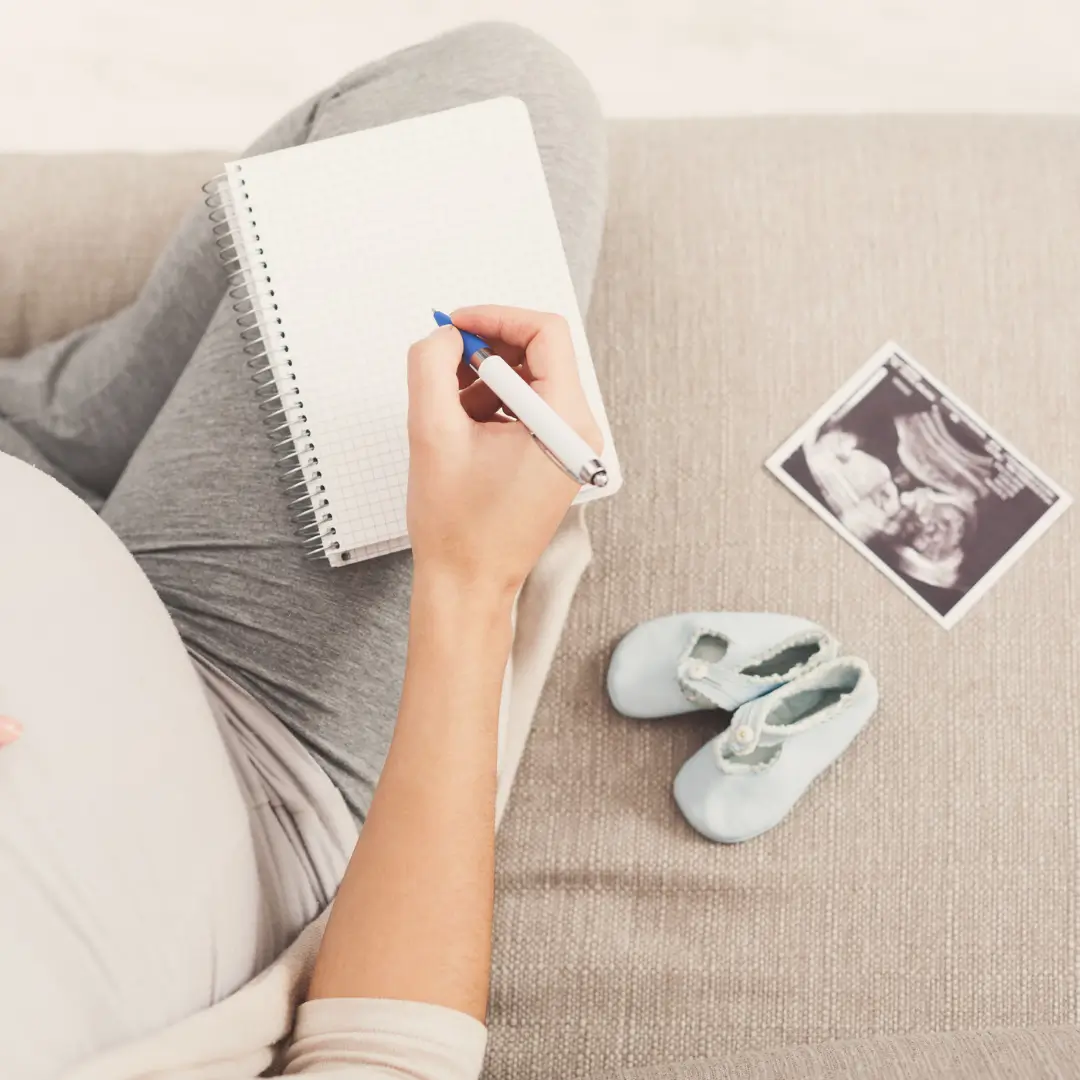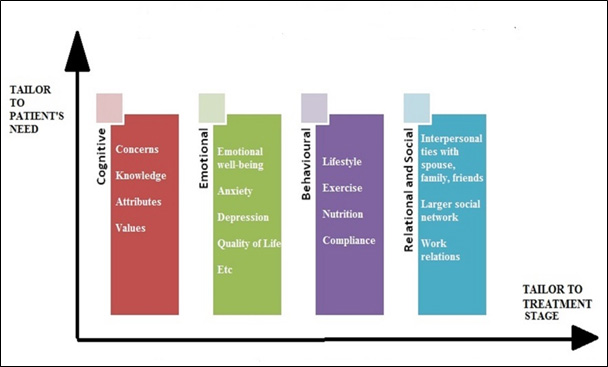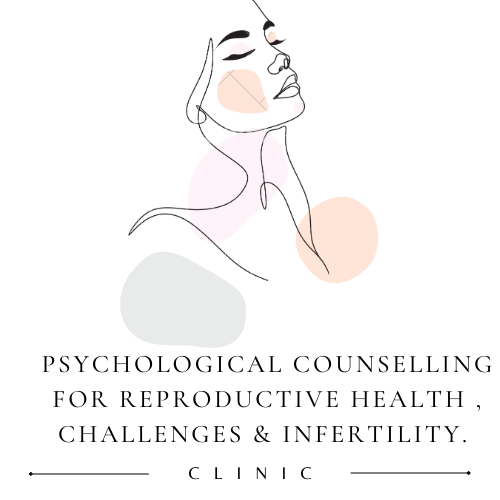Emotional Challenges During Fertility Struggles
Infertility can be a challenging journey that takes a toll on a person's emotional well-being. The inability to conceive can lead to feelings of sadness, frustration, and even shame. These emotional challenges can further exacerbate mental health issues and create a complex interplay between infertility and mental well-being.
Social stigma, negative stereotypes, barriers, gender biases, discrimination, cultural expectations adds to the loneliness of couples facing fertility issues.


Infertility & Mental Health Statistics
The prevalence of infertility and its impact on mental health is significant. According to the Harvard Mental Health Letter published in May 2009, individuals experiencing infertility are more likely to experience higher levels of stress, anxiety, and depression compared to the general population. The letter also highlights the importance of addressing mental health concerns alongside fertility treatments to optimize outcomes.
Additionally, studies have shown that women experiencing infertility have similar levels of anxiety and depression as individuals with cancer, HIV, and heart disease. These statistics underscore the need for comprehensive mental health support throughout the infertility journey.
The Psychological toll on Sub-fertile Couples
Fertility issues have short-term and long-term impact on couples and families. It is significant and can vary from person to person. For many individuals and couples, the desire to have a child is deeply ingrained, and the inability to fulfill this dream can cause feelings of grief and loss. The constant cycle of hope and disappointment during fertility treatments can also lead to heightened levels of anxiety and stress.
Female infertility & psychological wellbeing
Infertility can cause significant anxiety and emotional distress in women and couples. Studies have shown that infertile women are twice as likely to suffer from mental disorders than infertile men. Women who are undergoing fertility issues may also experience different reactions to medical procedures that may trigger their depression and anxiety.
Male Infertility and Its Impact on Mental Health
Infertility is not solely a female issue; it also affects men. Male infertility can have a profound impact on mental health and well-being. Men experiencing infertility may feel a sense of emasculation, questioning their masculinity and self-worth. They may also experience feelings of guilt and shame, believing that they have failed to fulfill their role as a provider and potential father.
Supporting men's mental health during infertility is crucial and uncommon in Indian scenario. Encouraging open communication and providing a safe space for men to express their emotions can help alleviate the psychological burden. Seeking out psychotherapy and support groups specifically tailored to men experiencing infertility can provide valuable resources and emotional support.


Insights on Infertility treatments, Coping in IVF/IUI cycles and Mental Health
According to the Harvard mental health letter, 2019, infertility treatments can be emotionally taxing, often involving invasive procedures, threat, hormonal fluctuations, and the constant anticipation of potential success or failure. Many a times, a successful treatment results in a pregnancy, that aborts after a few weeks of continuation. Thus, both achieving a pregnancy, its continuation, recurrent miscarriages/complications and achieving childbirth, is a challenging journey. The stress is real and shared not just by the couples, but also by the doctors, nurses and other fertility care staff.
Therefore, treatment guidelines, highlights the significance of support systems and mental health interventions in mitigating the emotional toll of infertility.
Most of the medically assisted reproductive treatments (e.g. IUI, IVF, ICSI, Donor programs and surrogacy), can be burdensome in many ways. Thus, best practices for fertility care for couples, around the globe (i.e.,ESHRE,ASRM, NICE,ICMR etc), emphasizes the need for a multidisciplinary comprehensive approach that addresses both the physical and emotional aspects of infertility.
AT PCRH , we offer multiple level, multiple specialized care, not just before treatment cycles but during and after treatment periods too. This is irrespective of the outcomes of IUI/IVF cycles. Which means that even if the cycles fail / the couple faces miscarriages or wishes to drop-off from IUI/IVF cycles, the psychological therapies are continued. Our progressive efforts help you to plan your fertility and treatment journey, your way, to aid in greater personal choice and freedom, faster recovery/ healing and better psychosocial preparation of couples and their families. All our treatment protocols are highly evidenced based and adhere to the following pathway of multi-comprehensive collaborative care:-
PCRH Model for Provision of Psychosocial therapies for Sub-fertile couples, during various stages & outcomes of treatments (Based on ESHRE guidelines, 2015).

Best Mental Health Interventions for Infertility , IVF Coping and Pregnancy Loss offered at PCRH, Udaipur.
Coping with pregnancy loss can be an incredibly difficult and emotional experience. It is essential to prioritize mental health during this challenging time.
Our team works together, to deliver mental health interventions for individuals experiencing subfertility & these often involve a combination of psychotherapy, support groups, and self-care strategies.
Therapy can help individuals process their grief and navigate the complex emotions that accompany infertility. Support groups specifically tailored to infertility can offer a sense of community and validation, allowing individuals to share their stories and find solace in connecting with others who have had similar experiences.

Expert Talks
Links
About infertility and reproductive psychology by Dr Ansha Patel (Part 1 & 2):
https://youtu.be/OAeC15-H6So?si=nY1gyGHGDvfyK3DQ
https://youtu.be/wRg7z6Ze0gE?si=f0XuxpNpGUzzha7m
Coping with multiple treatment failures in infertility by Dr Ansha Patel:
https://youtu.be/XNknf5cJ8n4?si=UqiLSG9VnglEwUQP
Stress Coping in infertile couples by Dr Ansha Patel:
Infertility fertility Stress Psychologist Dr Ansha Patel Udaipur-Counselling for fertility IUI IVF
Biobehavioral factors affecting fertility in men and women by Dr Ansha Patel:
Factors for IVF fertility infertility biobehavioral stress by Psychologist dr ansha CMBS Udaipur
Infertility in men by Dr Rahul Taneja (Part 1 & 2 & 3) :
https://youtu.be/nPrh_xAa8RY?si=F7OeepEvgUZGLsde
https://youtu.be/owafBp4LXr8?si=7c3AWLWMfqRuxFCa
https://youtube.com/shorts/Qh-9dT0mWAQ?si=8yS0z5sJ3z0J-Kiz
Our Client feedbacks
Best IVF counseling n couple help. Our stress n worries are much allayed. Infertility treatment is really burdersome thanks to experts like Dr ansha for making everything seem so light n relaxing. Excellent team.
Dear Dr Taneja and Team, thank you so much for a wonderful webinar on Psychological Adaptations in Pregnancy. This was a much needed topic given the rising rates of reproductive crises globally; it was wonderful to see this local effort to account for the same. The topic at hand is not easy and unless more professionals speak clearly and factually about the data, there is not much that other professionals and non-professionals can do to help alleviate the burden of the same! Kudos!
I have been consulting Dr. Ansha Patel since 4 months for a family member and we have seen a lot of improvement in the patient. We have her constant support. She is very friendly and explains everything with patience. She is very professional and good at building trust with patients.
So glad found n met dr ansha online. Coping with reproductive challenges is much less stressful. Thanks to maam. Be it anxity stress depression anything. She's always there. Pillar of support. Both me n husband highly satisfied.
FAQ
The emotional challenges of infertility can take a toll on an individual's mental health and has a indirect link to fertility status. The connection between the two is undeniable. Understanding the psychological impact of infertility, seeking appropriate mental health interventions, and finding support are crucial steps in navigating this complex journey.
By addressing mental health concerns and seeking support from professionals and support groups, individuals and couples can find solace, validation, and effective coping strategies. It is essential to remember that infertility does not define a person's worth or their ability to be a loving parent/spouse/partner. With the right support and self-care, individuals can navigate the emotional challenges of infertility and preserve their physical as well mental well-being.
The connection between mental health and infertility is a two-way street. Stress, depression, and anxiety can disrupt physiological functioning, hormonal balance and reproductive functioning, making it more difficult to conceive.
Research has shown that individuals who experience depression and anxiety are more likely to have reduced fertility rates. Stress specifically can affect the hypothalamus, the part of the brain responsible for regulating hormones necessary for ovulation and sperm production. This disruption can interfere with the timing and success of conception as well as implantation rates.
Addressing mental health concerns is crucial when navigating the emotional challenges of infertility. Seeking professional help from Reproductive counselors or therapists such as Dr Rahul Taneja and Dr Ansha Patel , who specialize in infertility-related mental health can provide significant support for fertility enhancement. These mental health interventions often involve cognitive-behavioral therapy (CBT) , Acceptance and commitment therapy (ACT), emotion focused therapy (EFT) and mindfulness based therapies /techniques (MBSR/MBCT), which help individuals challenge negative thoughts , behaviors and develop coping strategies.
Therapy can assist individuals in reframing their experiences with infertility, life style alterations, reducing feelings of guilt, shame, worry, overthinking and self-blame. It can also equip individuals with effective stress management techniques, such as relaxation exercises and mindfulness practices. Additionally, support groups can provide a safe space for individuals to share their experiences, gain validation, and receive emotional support from others who understand their unique struggles. Comprehensive psychotherapies have nutritional elements , psychosexual counselling , hatha yoga practices and exercise based interventions for overall improvement of fertility status.
When navigating the emotional challenges of infertility and mental health, seeking support is crucial. Various resources and organizations specialize in providing assistance to individuals and couples experiencing infertility-related mental health issues. Some of them are:-
1. Resolve: The National Infertility Association is a valuable resource that offers support groups, educational resources, and advocacy for individuals and couples struggling with infertility. They provide a sense of community and a wealth of information to help individuals make informed decisions about their fertility journey.
2. Additionally, therapists and counselors specializing in infertility-related mental health can provide personalized support and guidance. The American Society for Reproductive Medicine (ASRM) website offers a directory of mental health professionals who specialize in infertility.
3. Subscription to Online platform for PCRH:
Link Resources
- Coping Techniques | RESOLVE: The National Infertility Association
- Infertility Counseling and Support | ReproductiveFacts.org
- Needs and coping with infertility in India JUJUL00 (icmr.nic.in)
